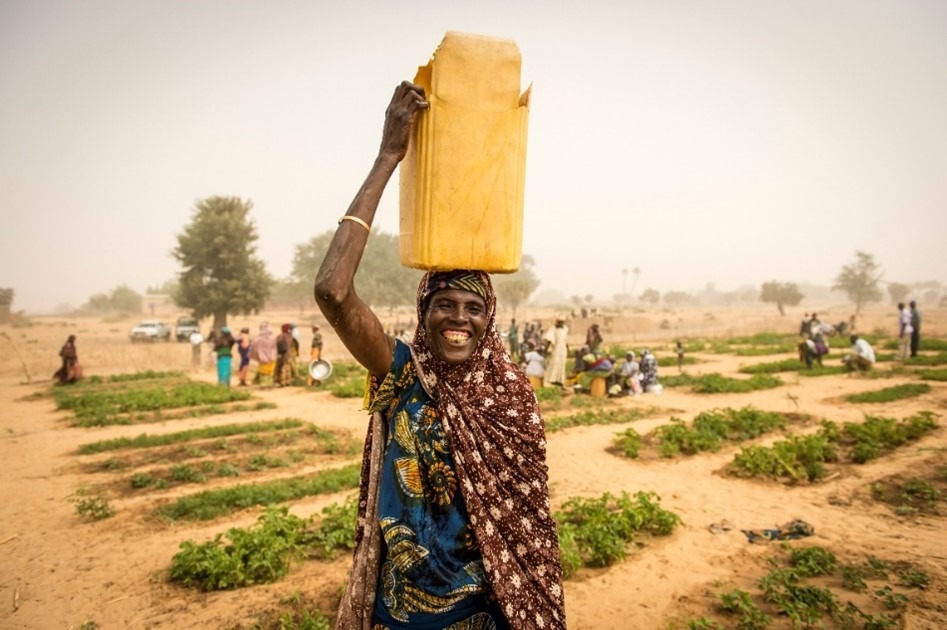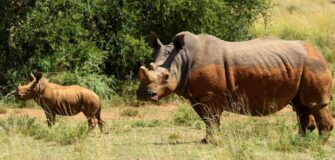Share
Pan African Women’s Day: Celebrating Champions of Gender Equality
The United States is proud to celebrate Pan African Women’s Day on July 31 and recognize the immense contributions African women have made to peace and prosperity across the region.
Pan African Women’s Day marks the commemoration of the first Pan African Women’s Conference and the establishment of the Pan African Women’s Organization (PAWO) in 1962. The PAWO works to advance women’s leadership and gender equality across the African continent.
A Region of Accomplishments
Since PAWO’s establishment and long before, African women have had pivotal leadership roles in political and economic sectors.
Many African countries possess a notably high ratio of women parliamentarians, with the Sub-Saharan region having the largest increase of women parliamentarians globally in 2023. Women from the African continent make up the highest percentage of women entrepreneurs globally and play an immeasurable role in economic development, from microenterprises to major corporations.
It is not just political and business leaders, however, that have driven the region’s notable accomplishments. The courageous activism of African women who have spoken out on issues ranging from female genital mutilation to peace in the home are among the leaders the U.S. celebrates today.
One such example is Fatou Baldeh, the Secretary of State’s 2024 International Women of Courage awardee from the Gambia, A survivor of female genital mutilation (FGM), Fatou has dedicated her strengths to educating the public and private sectors on human rights abuses and violations against women and girls. When confronted with a bill to overturn the ban on female genital cutting and, therefore, the threat of the Gambia becoming the first national globally to roll back protections against cutting, Baldeh says, “If this law gets repealed, we know they’re coming for more. So we will fight it to the end.”

The Challenges Ahead
Despite the courageous activism of its women leaders, many in the region must now take on new and deepening challenges.
Natural resource depletion has made women and girls’ lives increasingly dangerous and difficult. Even daily tasks, including water collection, put women and girls at disproportionate risk. And as water recedes, GBV significantly increases, a situation that is further exacerbated when men lose their jobs and income sources due to climate change.
Climate change exacerbates longstanding, global challenges of gender-based violence. More than two thirds of all women (69%) intentionally killed in Africa in 2017 were killed by intimate partners or other family members. Over 144 million girls and women have experienced FGM/C on the continent according to UNICEF, the highest of any region in the world.
![Women in Ethiopia collecting clean drinking water. [Photo Credit: USAID Flickr]](https://africana.news/wp-content/uploads/2024/08/Photo-2-Women-in-Ethiopia.jpg)
Women in Ethiopia collecting clean drinking water.
U.S. Support
“At the State Department, the idea that every woman and girl should be able to reach her full potential is central to our diplomacy.”
Secretary Blinken at the Launch of the U.S. Strategy on Global Women’s Economic Security
The U.S. government and Department of State is committed to supporting African women and amplifying their voices. Here are some examples:
WE-Champs supports women’s chambers of commerce and business associations to strengthen services for women entrepreneurs and address barriers to their economic participation in 24 countries around the world, including Nigeria and Senegal.
Through the African Women’s Entrepreneurship Program (AWEP), the U.S. government provides grants to support women entrepreneurs in 44 countries through increased access to capital and mentorship opportunities. The Biden-Harris Administration re-launched AWEP to enhance the U.S. government’s commitment to sustaining women leaders and joining them in the fight against gender inequality.
WE-Champs and AWEP strongly align with the U.S. Strategy on Global Women’s Economic Security, which seeks to advance women’s full participation in their economies, including increasing women’s access to digital technology, markets and trade, and labor protections and employment.
Similarly, the 2023 U.S. Strategy and National Action Plan on Women, Peace, and Security aims to enhance the safety of women and girls in conflict and crises; and women’s meaningful participation in peace, political, and security processes.
The U.S. Strategy to Respond to the Effects of Climate Change on Women addresses the risks of GBV resulting from climate change while also focusing on promoting women’s access to green and blue economy jobs to further their economic security. Additionally, this strategy emphasizes empowering women in climate advocacy by reducing barriers to participating in decision-making processes related to climate change in all sectors and at all levels.
The U.S. Strategy to Prevent and Respond to Gender-Based Violence Globally also works to advance the rights of women and girls and reduce GBV in the region.
These U.S. strategies outline policy commitments towards creating a more equitable society that celebrates the remarkable achievements made by women in Africa and worldwide. By creating economic opportunities for African women and reinforcing their efforts, we are supporting the hard work that will ultimately shape the future of our global community.
Source: https://www.state.gov/
You Might also Like










